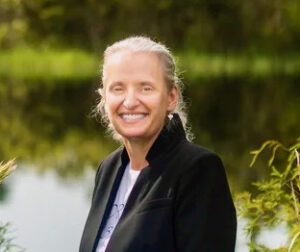Dr. Jennifer Jones
Naysayers can bury their heads in our sandy beaches all they want, but make no mistake: The single greatest threat facing Florida’s long-term health and prosperity is climate change. We must stop letting anti-science voices stand in the way of protecting our natural environment, which is fundamental to Florida’s economy, our health and well-being, and our way of life.
As a recent Florida Atlantic University (FAU) study shows, climate change is real and a truly bipartisan issue in the Sunshine State. An overwhelming majority is also concerned about the well-being of future generations in Florida due to climate change.

A no-brainer solution to tackle climate change in Florida is environmental education. Environmental education is a powerful solution because it provides valuable knowledge, develops workforce skills, encourages a mindset of problem solving, and motivates individual and community action to create a more just and sustainable world.
We need more and better environmental education that will help connect people and nature for the benefit of both. FAU found 74% of survey respondents — majorities from both political parties — believe Florida schools should teach the causes, consequences and solutions to climate change in our K-12 classrooms.
Environmental education creates greater student engagement and academic achievement in schools; it helps students develop the confidence to investigate and solve local problems. When grounded locally, students learn about connections between climate change and Florida’s wetlands, manatees and the Everglades, and less time on glaciers and polar bears in distant lands.
I recently attended the annual conference of the League of Environmental Educators in Florida (full disclosure, I serve as president-elect of this organization’s board of directors). One theme that emerged through presentations, conversations and networking is the dire need for more resources to conduct environmental education in Florida. We need more dedicated time during the school day for learning outdoors, more teacher training, more money for staffing and a greater acknowledgment of the power of environmental literacy.
Florida has fallen woefully behind in developing and delivering climate change curricula specific to our state’s needs. Teachers lack money for transportation to take their students to a local park or nature center for hands-on science. They are discouraged from learning outside the four walls of their classroom because Florida has an educational culture that is hyper-focused on training students to perform on standardized tests instead of preparing them to be knowledgeable, engaged and responsible community members.
To be sure, I will get hate mail arguing climate-change science is not real or that time in school is better spent on other things. But the science and research of climate change are undeniable. Some believe otherwise because climate change has been intentionally positioned as a wedge issue for political gain in Florida.
Our young people suffer today and face an uncertain future due to climate change. A new study by researchers at top universities across the globe surveyed 10,000 youth from 10 countries and found 60% are worried about climate change. Nearly half said their feelings about climate change negatively affect their daily life and functioning. Young people face an epidemic of climate anxiety because they recognize the lack of action being taken by their leaders.
Let’s commit to a bold, yet common-sense idea: Let’s invest in ourselves, each other, and our shared future by spending more time living and learning outdoors.
Our schools can foster a sense of place and help our young people grow engagement in their local communities and Florida’s environment. We will all be better for it.
Dr. Jennifer Jones is director of the Center for Environment & Society, part of The Water School at Florida Gulf Coast University. Courtesy of The Invading Sea.



